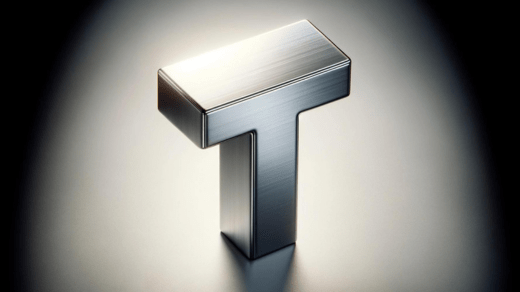Introduction to Stainless Steel T Patti
Stainless steel T patti, also known as stainless steel T section, is a vital component in numerous industries due to its excellent mechanical properties, durability, and aesthetic appeal. This article aims to provide a detailed overview of stainless steel T patti, including its types, applications, benefits, and maintenance. By the end of this comprehensive guide, you will have a thorough understanding of why stainless steel T patti is an indispensable material in modern construction and manufacturing.
Types of Stainless Steel T Patti
1. Austenitic Stainless Steel T Patti
Austenitic stainless steel T patti is the most commonly used type, known for its excellent corrosion resistance and high tensile strength. T patti near me It contains high levels of chromium and nickel, which contribute to its durability and non-magnetic properties. This type of stainless steel T patti is ideal for environments exposed to corrosive elements, such as marine and chemical industries.
2. Ferritic Stainless Steel T Patti
Ferritic stainless steel T patti is characterized by its magnetic properties and good resistance to stress corrosion cracking. It contains lower amounts of nickel compared to austenitic stainless steel, making it more cost-effective. This type of T patti is commonly used in automotive applications, kitchen appliances, and industrial equipment.
3. Martensitic Stainless Steel T Patti
Martensitic stainless steel T patti is known for its high hardness and strength, achieved through heat treatment. It contains higher levels of carbon, which enhances its wear resistance. This type of stainless steel T patti is suitable for applications requiring high mechanical performance, such as cutting tools and surgical instruments.
4. Duplex Stainless Steel T Patti
Duplex stainless steel T patti combines the properties of austenitic and ferritic stainless steels, offering superior strength and corrosion resistance. It is particularly useful in applications where both high strength and resistance to chloride-induced stress corrosion cracking are required. This type of T patti is commonly used in oil and gas, petrochemical, and marine industries.
Applications of Stainless Steel T Patti
1. Construction Industry
Stainless steel T patti is extensively used in the construction industry due to its structural integrity and aesthetic appeal. It is used in building frameworks, bridges, and architectural elements, providing strength and durability while enhancing the visual appearance of structures.
2. Automotive Industry
In the automotive industry, stainless steel T patti is used in manufacturing vehicle frames, exhaust systems, and decorative trims. Its corrosion resistance and ability to withstand high temperatures make it an ideal material for automotive applications, ensuring longevity and reliability.
3. Industrial Equipment
Stainless steel T patti is a critical component in various industrial equipment, including machinery, conveyor systems, and storage tanks. Its high strength and resistance to wear and tear ensure the efficient and safe operation of industrial processes.
4. Marine Applications
Due to its excellent corrosion resistance, stainless steel T patti is widely used in marine applications. It is used in shipbuilding, offshore structures, and marine hardware, providing durability and longevity in harsh marine environments.
5. Chemical and Petrochemical Industries
In the chemical and petrochemical industries, stainless steel T patti is used in the construction of pipelines, reactors, and storage tanks. Its resistance to corrosive chemicals and high temperatures makes it a reliable material for handling hazardous substances.
Benefits of Stainless Steel T Patti
1. Corrosion Resistance
One of the primary benefits of stainless steel T patti is its exceptional corrosion resistance. The presence of chromium forms a passive layer on the surface, preventing rust and corrosion, even in harsh environments.
2. Strength and Durability
Stainless steel T patti offers high tensile strength and durability, making it suitable for applications requiring robust structural support. Its ability to withstand extreme temperatures and mechanical stress ensures long-term performance and reliability.
3. Aesthetic Appeal
In addition to its mechanical properties, stainless steel T patti is also valued for its aesthetic appeal. It provides a sleek, modern look, T profile patti making it a popular choice in architectural and decorative applications.
4. Low Maintenance
Stainless steel T patti requires minimal maintenance, reducing the overall cost of ownership. Its resistance to staining and ease of cleaning make it a practical choice for various applications.
5. Recyclability
Stainless steel is 100% recyclable, making it an environmentally friendly material. Using stainless steel T patti contributes to sustainable development by reducing the environmental impact of construction and manufacturing activities.
Maintenance of Stainless Steel T Patti
1. Regular Cleaning
To maintain the appearance and performance of stainless steel T patti, regular cleaning is essential. Use mild detergents and non-abrasive cleaning tools to remove dirt and grime. Avoid using harsh chemicals that can damage the surface.
2. Inspect for Damage
Regularly inspect stainless steel T patti for any signs of damage or wear. Addressing issues such as scratches or corrosion spots early can prevent further deterioration and extend the lifespan of the material.
3. Protective Coatings
In environments with high exposure to corrosive elements, consider applying protective coatings to stainless steel T patti. These coatings can provide an additional layer of protection, enhancing the material’s resistance to corrosion and wear.
Conclusion
Stainless steel T patti is a versatile and essential material in various industries, offering numerous benefits such as corrosion resistance, strength, aesthetic appeal, and low maintenance. Its wide range of applications, from construction to marine industries, highlights its importance in modern engineering and design. By understanding the different types, applications, and maintenance practices, you can make informed decisions when selecting stainless steel T patti for your projects.

